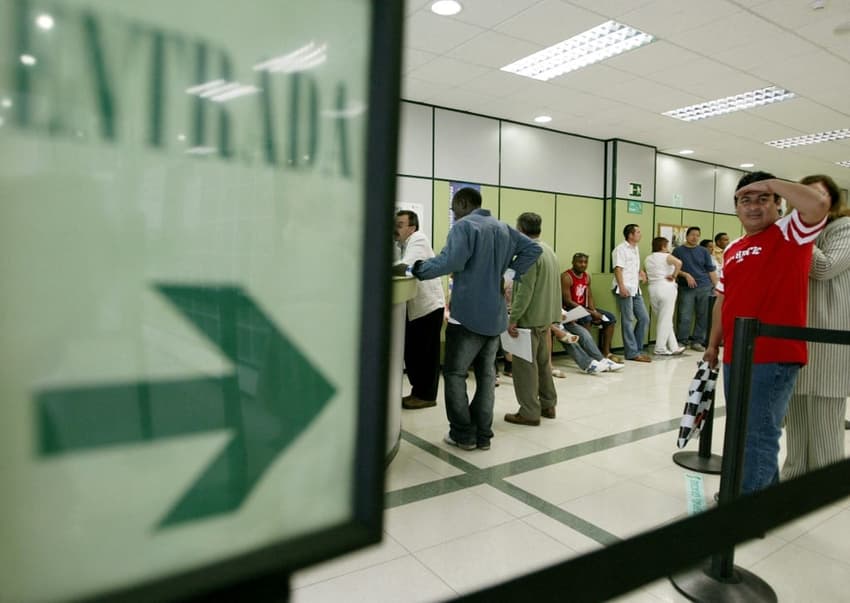Spain hires 300 extra civil servants to deal with foreign office backlog

The Spanish government's recruitment comes as part of a drive to deal with 190,000 outstanding applications, including many UK nationals' post-Brexit residency documents, with the aim of reducing waiting times across Spain.
The Spanish government is hoping to resolve almost 200,000 pending foreign office files and applications by hiring 295 new employees.
Extranjería's 190,000 outstanding cases are believed to be due to a combination of a build-up of applications stemming from a backlog born from the pandemic, and a surge in applications following it.
In 2021 Spain received 866,790 applications from foreigners for residence and work permits, the highest yearly figure during the 2012-2021 period. That number represents a 28.57 percent increase in 2022, and a 11.6 percent increase of 2019's figures.
READ MORE: NEW LAWS: How it’s now easier for foreigners to work in Spain
The government hopes the new employees will help ease the backlog of applications, speed up the issuing of residency documents and work permits, and finally resolve the ongoing saga of 'legalising' unregistered UK citizens with residency permits following the loss of their EU status after Brexit.
Freeing up foreign office resources from Brexit bureaucracy, it is thought, will allow workers to deal with the growing number of applications from non-UK nationals.
According to a government statement, the Extranjería centres will be better equipped to "face the challenges that these offices face as a result of the increase in applications for residence and work authorisation in recent years that was only interrupted during the hardest months of the pandemic."
Catalonia will receive the most new employees, with 61, followed by Madrid (56), the Balearic Islands (19), the Valencia region (38), Andalusia (49), Canary Islands (23), Castilla-La Mancha (4), Aragon (7), Basque Country (9), Galicia (2), Murcia (15), Navarra (3), Asturias (3), Ceuta (2).
In 2021, Spain issued more than 370,000 first-time residency permits to non-EU nationals, a 31 percent rise compared to 2020 figures.
This figure represented 13 percent of the total number of residency visas issued across the EU, putting Spain only behind Poland.
READ MORE: The downsides of moving to Spain for work
Comments
See Also
The Spanish government is hoping to resolve almost 200,000 pending foreign office files and applications by hiring 295 new employees.
Extranjería's 190,000 outstanding cases are believed to be due to a combination of a build-up of applications stemming from a backlog born from the pandemic, and a surge in applications following it.
In 2021 Spain received 866,790 applications from foreigners for residence and work permits, the highest yearly figure during the 2012-2021 period. That number represents a 28.57 percent increase in 2022, and a 11.6 percent increase of 2019's figures.
READ MORE: NEW LAWS: How it’s now easier for foreigners to work in Spain
The government hopes the new employees will help ease the backlog of applications, speed up the issuing of residency documents and work permits, and finally resolve the ongoing saga of 'legalising' unregistered UK citizens with residency permits following the loss of their EU status after Brexit.
Freeing up foreign office resources from Brexit bureaucracy, it is thought, will allow workers to deal with the growing number of applications from non-UK nationals.
According to a government statement, the Extranjería centres will be better equipped to "face the challenges that these offices face as a result of the increase in applications for residence and work authorisation in recent years that was only interrupted during the hardest months of the pandemic."
Catalonia will receive the most new employees, with 61, followed by Madrid (56), the Balearic Islands (19), the Valencia region (38), Andalusia (49), Canary Islands (23), Castilla-La Mancha (4), Aragon (7), Basque Country (9), Galicia (2), Murcia (15), Navarra (3), Asturias (3), Ceuta (2).
In 2021, Spain issued more than 370,000 first-time residency permits to non-EU nationals, a 31 percent rise compared to 2020 figures.
This figure represented 13 percent of the total number of residency visas issued across the EU, putting Spain only behind Poland.
READ MORE: The downsides of moving to Spain for work
Join the conversation in our comments section below. Share your own views and experience and if you have a question or suggestion for our journalists then email us at [email protected].
Please keep comments civil, constructive and on topic – and make sure to read our terms of use before getting involved.
Please log in here to leave a comment.